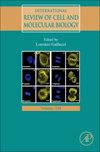Role of chemokine receptors in transplant rejection and graft-versus-host disease.
3区 生物学
Q1 Biochemistry, Genetics and Molecular Biology
International review of cell and molecular biology
Pub Date : 2024-08-15
DOI:10.1016/bs.ircmb.2024.07.004
引用次数: 0
Abstract
Organ transplantation increases life expectancy and improves the quality of life of patients experiencing specific conditions such as terminal organ failure. Despite matching efforts between donor and recipient, immune activation can interfere with allograft survival after transplantation if immunosuppression is not used. With both innate and adaptive responses, this is a complicated immunological process. This can lead to organ rejection, or graft-versus-host disease (GVHD), depending on the origin of the immune response. Inflammatory factors, such as chemokine receptors and their ligands, are involved in a wide variety of immunological processes, including modulating transplant rejection or GVHD, therefore, chemokine biology has been a major focus of transplantation studies. These molecules attract circulating peripheral leukocytes to infiltrate into the allograft and facilitate dendritic and T cell trafficking between lymph nodes and the graft during the allogeneic response. In this chapter, we will review the most relevant chemokine receptors such as CXCR3 and CCR5, among others, and their ligands involved in the process of allograft rejection for solid organ transplantation and graft-versus-host disease in the context of hematopoietic cell transplantation.趋化因子受体在移植排斥反应和移植物抗宿主疾病中的作用。
器官移植可延长器官终末衰竭等特殊病症患者的寿命并改善其生活质量。尽管供体和受体之间努力进行匹配,但如果不使用免疫抑制剂,免疫激活可能会影响移植后异体移植物的存活。由于存在先天性和适应性反应,这是一个复杂的免疫过程。这可能导致器官排斥或移植物抗宿主疾病(GVHD),具体取决于免疫反应的来源。趋化因子受体及其配体等炎症因子参与了多种免疫过程,包括调节移植排斥反应或移植物抗宿主疾病,因此趋化因子生物学一直是移植研究的重点。这些分子能吸引循环中的外周白细胞渗入异体移植物,并在异体反应期间促进树突状细胞和 T 细胞在淋巴结和移植物之间的迁移。在本章中,我们将回顾最相关的趋化因子受体(如 CXCR3 和 CCR5 等)及其配体,它们参与了实体器官移植中的异体移植物排斥反应和造血细胞移植中的移植物抗宿主疾病。
本文章由计算机程序翻译,如有差异,请以英文原文为准。
求助全文
约1分钟内获得全文
求助全文
来源期刊

International review of cell and molecular biology
BIOCHEMISTRY & MOLECULAR BIOLOGY-CELL BIOLOGY
CiteScore
7.70
自引率
0.00%
发文量
67
审稿时长
>12 weeks
期刊介绍:
International Review of Cell and Molecular Biology presents current advances and comprehensive reviews in cell biology-both plant and animal. Articles address structure and control of gene expression, nucleocytoplasmic interactions, control of cell development and differentiation, and cell transformation and growth. Authored by some of the foremost scientists in the field, each volume provides up-to-date information and directions for future research.
 求助内容:
求助内容: 应助结果提醒方式:
应助结果提醒方式:


